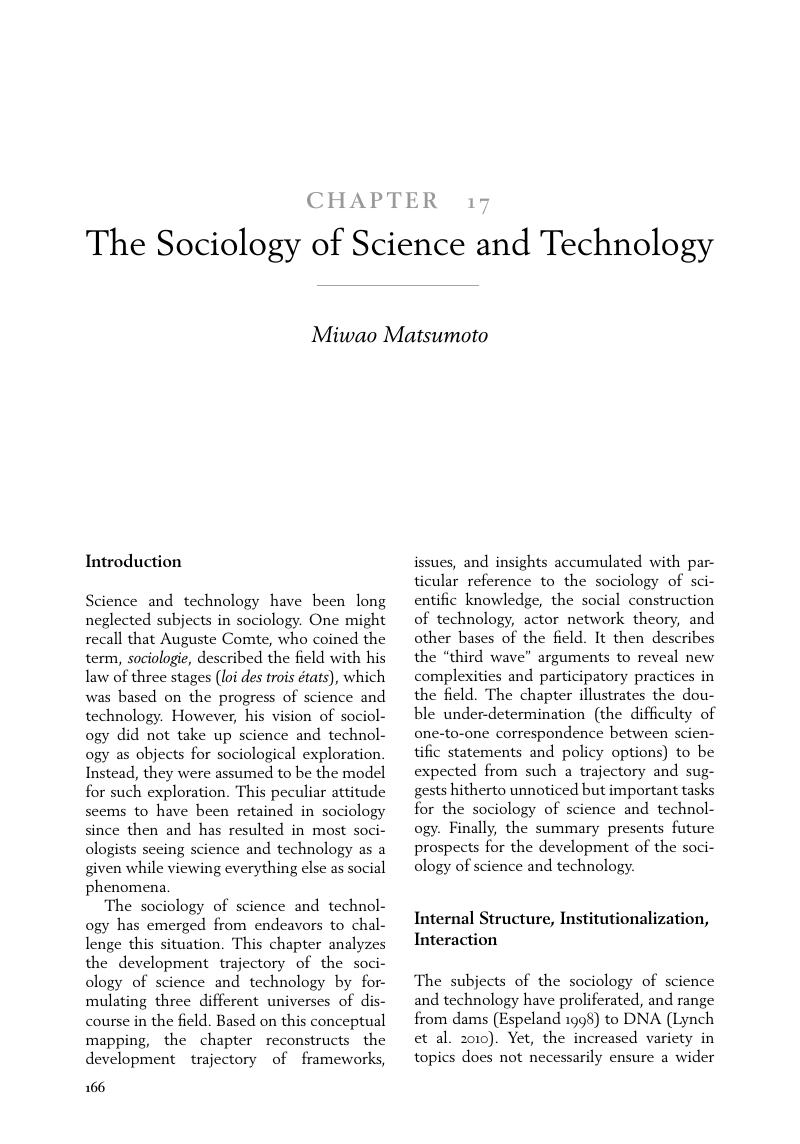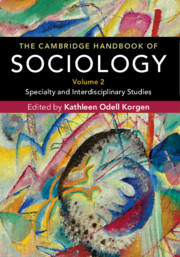Book contents
- The Cambridge Handbook of Sociology
- The Cambridge Handbook of Sociology
- Copyright page
- Contents
- Figures
- Tables
- Contributors
- Introduction
- Part I Perspectives on Race
- Part II Perspectives on Social Class
- Part III Feminist Perspectives
- Part IV Specialty Areas
- Chapter 10 The Sociology of Non-human Animals and Society
- Chapter 11 Quality-of-Life/Social Indicators Research
- Chapter 12 Visual Sociology
- Chapter 13 The Sociology of Risk
- Chapter 14 Sociology of Disaster
- Chapter 15 The Sociology of Mental Health
- Chapter 16 Sociobiology
- Chapter 17 The Sociology of Science and Technology
- Chapter 18 The Sociology of Violence
- Chapter 19 Environmental Justice
- Chapter 20 The Sociology of Food
- Part V The Sociology of the Self
- Part VI The Sociology of the Life Course
- Part VII Culture and Behavior
- Part VIII Sociology's Impact on Society
- Part IX Related Fields
- Index
- References
Chapter 17 - The Sociology of Science and Technology
from Part IV - Specialty Areas
Published online by Cambridge University Press: 07 September 2017
- The Cambridge Handbook of Sociology
- The Cambridge Handbook of Sociology
- Copyright page
- Contents
- Figures
- Tables
- Contributors
- Introduction
- Part I Perspectives on Race
- Part II Perspectives on Social Class
- Part III Feminist Perspectives
- Part IV Specialty Areas
- Chapter 10 The Sociology of Non-human Animals and Society
- Chapter 11 Quality-of-Life/Social Indicators Research
- Chapter 12 Visual Sociology
- Chapter 13 The Sociology of Risk
- Chapter 14 Sociology of Disaster
- Chapter 15 The Sociology of Mental Health
- Chapter 16 Sociobiology
- Chapter 17 The Sociology of Science and Technology
- Chapter 18 The Sociology of Violence
- Chapter 19 Environmental Justice
- Chapter 20 The Sociology of Food
- Part V The Sociology of the Self
- Part VI The Sociology of the Life Course
- Part VII Culture and Behavior
- Part VIII Sociology's Impact on Society
- Part IX Related Fields
- Index
- References
Summary

- Type
- Chapter
- Information
- The Cambridge Handbook of SociologySpecialty and Interdisciplinary Studies, pp. 166 - 177Publisher: Cambridge University PressPrint publication year: 2017



